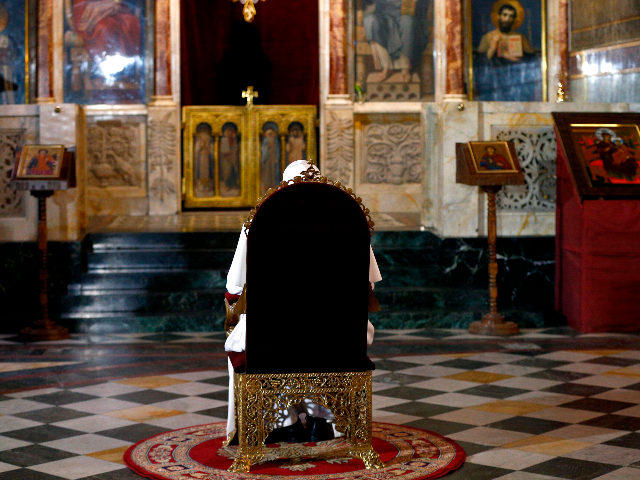ROME — Veteran Vatican journalist Edward Pentin has launched a fascinating “who’s who” of the Catholic college of cardinals, meant to serve as a racing form to handicap, and perhaps influence, the next papal election.
The Next Pope: The Leading Cardinal Candidates (Sophia Press, 2020) is a guidebook to the 19 main “papabili” — or most likely papal contenders — for the next conclave. Since most of the cardinals do not know each other very well, Pentin argued, they risk arriving to the papal conclave with very little idea of where each other stands on a host of issues, and thus ill-equipped for the momentous task of electing one of the most important spiritual leaders on the planet.
Pentin, the Rome correspondent for the National Catholic Register and a 17-year veteran in covering the Vatican, suggested that it is not only rank-and-file lay Catholics around the world who know little about who the cardinals really are, but their fellow cardinals as well. This racetrack program intends to fill that gap by providing not only mini bios of the most probable candidates, but also a summary of their pastoral track record and their stands on issues that could affect their suitability to sit in the chair of Saint Peter.
“Unlike a political leadership contest, where the candidates are publicly scrutinized, few of us know much about these men who play an enormous, but sometimes unknown, role in the Church and the world,” Pentin wrote.
Thus, Pentin furnished the backgrounds of 19 leading candidates for the papacy, including Cardinal Antonio Luis Tagle, prefect of the Congregation for the Evangelization of Peoples, the Vatican Secretary of State Cardinal Pietro Parolin, Cardinal Sean O’Malley of Boston, Cardinal Gerhard Müller, former prefect of the Congregation for the Doctrine of the Faith, and Cardinal Raymond Burke, the former chief of the Vatican’s highest court.
The cardinals entering a conclave “need to be able to discern the righteous from the rogues, the saints from the schemers, the apostles from the bureaucrats,” Pentin contended. “Because of the importance of their choice, and their future careers, cardinals have historically sought to be well informed about their colleagues’ real and feigned beliefs and behaviors.”
Pope Francis’ propensity for naming cardinals from “the periphery” has also generated a situation where many of the new cardinals are completely off the radar for their fellow electors.
“The Next Pope aims to be useful for cardinal-electors, the media, and everyone affected by the most influential religious leader on earth,” Pentin declared, and insisted that he has endeavored to present each of the cardinals “in charity and truth,” hoping to provide “an accurate picture of what sort of man might one day fill the shoes of the Fisherman.”
A side note that Mr. Pentin does not address in his book, but that will be on the minds of many of his readers, is its relevance to the 2013 election of Pope Francis
One widely held theory suggests that in the 2013 election a tight cadre of liberal cardinals basically foisted their candidate — a little known Argentinian cardinal by the name of Jorge Bergoglio — on the rest of the college. Since few knew Bergoglio very well, the theory goes, his promoters could paint him as a moderate who had been ostracized within his Jesuit order for being too conservative for them, a narrative that would appeal to the many conservatives among the electors. In point of fact, Bergoglio was quite the opposite: an anti-free market progressive with grand ideas of reform for the Church, who only showed his true colors once he donned the white papal robes, the theory proposes.
A logical corollary to this thesis is that if the cardinals had known ahead of time exactly who Jorge Bergoglio was and what he thought, perhaps he would never have been elected.
It is, of course, entirely possible that he would have been elected anyway. Catholics believe that the Holy Spirit — God himself — participates in some mysterious way in a papal election. This does not mean that “rogues” are never elected, as history so eloquently demonstrates, but it does suggest that something beyond mere human machinations is at work in the election of the Roman pontiff.
Whatever one’s particular beliefs in the matter, most would agree that more information is a good thing. The better informed the cardinals are regarding the true nature of their comrades-in-arms, the better suited they will be to elect a fitting candidate.
If this is so, Pentin’s book will be an invaluable aid for those involved in this critical task as well as for those who will be impacted by it, and even for those who just like to watch a good race.

COMMENTS
Please let us know if you're having issues with commenting.